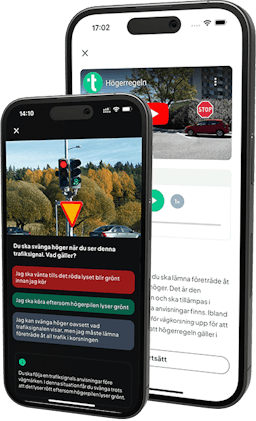Peer Pressure
We are constantly influenced by other people. If you are in a group and people encourage you to behave a certain way, it can be difficult to say no. You want to fit in and not be ostracised from the group. In many cases, this can lead drivers to take unnecessary risks, although in certain cases peer pressure can also have a positive effect.
Positive Peer Pressure
In a well-functioning group, everyone can stand up for their own opinions, no matter what others in the group may say or think. In such groups, you will feel able to speak up if your friends take unnecessary risks on the road. If the group makes clear that they will not tolerate the driver breaking traffic rules, then this can have a positive effect on the driver.
Example:
- You consider driving home from a party, even though you have had a lot to drink. You change your mind, however, as many of your friends tell you that you are not in the right state to drive.

- You are getting a lift with a friend who is driving. Your friend drives at 120km/h, even though the speed limit on the road is 70km/h. Because you know that this behaviour is dangerous and it is illegal to drive so fast on a 70km road, you tell your friend to slow down.
Negative Peer Pressure
In groups that do not function quite as well, you may feel unable to express your opinion. You do the same as everyone else and give in to peer pressure. Studies have shown that younger drivers are more easily influenced by other passengers and that this increases the risk of an accident by two or three times.
Example:
- You have reduced your speed to 40km/h on a 50km road because the road conditions are slippery. Your friends in the car complain and say: “Come on, drive faster! Are you a coward or what?” Although you feel uncomfortable and afraid, you do as they say and drive faster.
- You are at a party and have had a lot to drink. Even though you don’t want to drive, your friends convince you to give them a lift home.
Qualities that increase your risk of giving into peer pressure includes poor self-confidence, insecurity and uncertainty, fear of looking stupid and/or low tolerance for stress.
Stress
We get stressed when we are faced with higher expectations than what we feel able to manage. The ability to cope with stress varies from person to person. Some people get stressed much more easily than others.

The more difficult a situation on the road is, the more stressed we will become. Moderate stress can increase our performance, but if we are exposed to overly high levels of stress then our performance can be significantly impaired.
To reduce the risk of our performance becoming impaired, it is important that we manage stress properly and remain calm. This makes it easier to think clearly and solve the problem.
Some examples of reactions caused by high stress levels can include:
- Impaired ability to react
- Panic
- Misinterpretation of your surroundings
- Difficulty thinking straight, mental tiredness
- Confusion or feeling glassy-eyed
- Tunnel vision
- You give up and don’t even try to solve the situation
Prevent getting into stressful situations by:
- Driving calmly, defensively and at low speeds
- Drive at times when there is less traffic on the roads
- Leave yourself plenty of time for the drive
- Opt for easier routes


